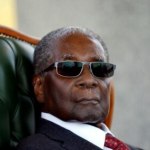Malaysia's biggest supermarket chain has announced it will not sell products that are marked ‘palm oil-free.'
马来西亚最大的连锁超市宣布将停售标有“不含棕榈油”的商品。
The head of the company announced the move on Thursday. It is part of a campaign by Malaysia to protect the image of palm oil at home and in overseas markets.
该公司负责人周四宣布了这一举措。这是马来西亚在国内外市场保护棕榈油形象的活动的一部分。
Malaysia is the world's second largest palm oil producer, after Indonesia. The world palm oil trade is said to be worth an estimated $60 billion. But in recent years, it has become the target of environmental activists. They say large areas of land, much of it rainforest, have been cleared to grow the trees that produce the valuable commodity.
马来西亚是全球仅次于印尼的第二大棕榈油生产国。据称全球棕榈油贸易价值大约在600亿美元。但近年来,它已经成为了环保活动人士针对的目标。环保人士称,大片土地,其中大部分是热带雨林,被清理出来用于种植生产这种有价商品的树木。
As a result, the European Union passed an act this year requiring the slow phase out of palm oil as a renewable fuel by 2030. The EU has linked intensive efforts to expand palm oil production to deforestation.
因此欧盟今年通过了一项法案,要求在2030年之前逐步淘汰将棕榈油作为可再生燃料。欧盟已经将扩大棕榈油生产的密集措施同森林砍伐联系了起来。
In some areas, palm oil is used as a biodiesel fuel. But in almost 70 percent of the world, palm oil is used in cooking and food products, such as bread and pizza.
在某些地区,棕榈油被用作生物柴油燃料。但是在全球70%的地区,棕榈油被用于烹饪以及面包和披萨等食品。
Two countries, Malaysia and Indonesia, produce 85 percent of the world's palm oil. Now, the Malaysian government is considering banning all products that are marked ‘palm oil-free.'
马来西亚和印尼这两个国家生产了全球85%的棕榈油。马来西亚政府目前正考虑禁止所有标有“不含棕榈油”的产品。
Ameer Ali Mydin is the managing director of Mydin Mohamed Holdings, which owns the supermarket chain. He said Mydin stores removed all products claiming to be anti-palm oil on Wednesday. He said the aim is to convey the importance of palm oil to the Malaysian economy.
阿米尔·阿里·迈汀是这家连锁超市所属的迈汀穆罕默德集团的董事总经理。他说,迈汀超市下架了所有宣称反棕榈油的产品。他称此举目的是为了传达棕榈油对马来西亚经济的重要性。
Ameer Ali recently told reporters, that his company "...must support palm oil but must also make sure (to counter) the subtle messages, the marketing and branding exercises that people do..."
阿米尔·阿里最近对记者表示,他的公司“一定支持棕榈油,但是也一定会确保对那些微妙信息、营销和品牌推广做出反击。”
He said the anti-palm oil products that were removed are all imported, but he would not say how many products were affected.
他说,被下架的反棕榈油产品都是进口产品,但是他不愿意透露有多少产品受到影响。
Teresa Kok is Malaysia's minister of primary industries. She welcomed Mydin's campaign. She told reporters she hoped other stores in the country would follow suit.
郭素沁是马来西亚第一产业部部长。她对迈汀超市的活动表示欢迎。她告诉记者,希望国内的其它超市也会效仿。
In July, Malaysia's government threatened an international school over spreading "anti-palm oil propaganda." And Indonesia, the world's biggest palm oil producer, told some businesses in Jakarta last month to remove food products with "palm oil-free" labels from their stores.
今年7月,马来西亚政府对一家国际学校传播“反棕榈油宣传”提出警告。印尼这个全球最大的棕榈油生产国上月要求雅加达的一些企业从门店中下架标有“不含棕榈油”的产品。
I'm Mario Ritter, Jr.
我是小马里奥·里特。(51VOA.COM原创翻译,禁止转载,违者必究!)
By Mario Ritter Jr.07 September, 2019
Malaysia's biggest supermarket chain has announced it will not sell products that are marked ‘palm oil-free.'
The head of the company announced the move on Thursday. It is part of a campaign by Malaysia to protect the image of palm oil at home and in overseas markets.
Malaysia is the world's second largest palm oil producer, after Indonesia. The world palm oil trade is said to be worth an estimated $60 billion. But in recent years, it has become the target of environmental activists. They say large areas of land, much of it rainforest, have been cleared to grow the trees that produce the valuable commodity.
 File -- A worker arranges the cooking oil processed with palm oil on display for sale at a hypermarket in Kuala Lumpur, Malaysia.
File -- A worker arranges the cooking oil processed with palm oil on display for sale at a hypermarket in Kuala Lumpur, Malaysia.As a result, the European Union passed an act this year requiring the slow phase out of palm oil as a renewable fuel by 2030. The EU has linked intensive efforts to expand palm oil production to deforestation.
In some areas, palm oil is used as a biodiesel fuel. But in almost 70 percent of the world, palm oil is used in cooking and food products, such as bread and pizza.
Two countries, Malaysia and Indonesia, produce 85 percent of the world's palm oil. Now, the Malaysian government is considering banning all products that are marked ‘palm oil-free.'
Ameer Ali Mydin is the managing director of Mydin Mohamed Holdings, which owns the supermarket chain. He said Mydin stores removed all products claiming to be anti-palm oil on Wednesday. He said the aim is to convey the importance of palm oil to the Malaysian economy.
Ameer Ali recently told reporters, that his company "...must support palm oil but must also make sure (to counter) the subtle messages, the marketing and branding exercises that people do..."
He said the anti-palm oil products that were removed are all imported, but he would not say how many products were affected.
Teresa Kok is Malaysia's minister of primary industries. She welcomed Mydin's campaign. She told reporters she hoped other stores in the country would follow suit.
In July, Malaysia's government threatened an international school over spreading "anti-palm oil propaganda." And Indonesia, the world's biggest palm oil producer, told some businesses in Jakarta last month to remove food products with "palm oil-free" labels from their stores.
I'm Mario Ritter, Jr.
Emily Chow reported this story for Reuters. Mario Ritter Jr. adapted it for VOA Learning English. George Grow was the editor.
______
Words in This Story
chain – n. stores having the same ownership and selling the same kinds of goods
commodity –n. a basic material that is widely traded and used
phase out –v. to stop using in steps over time
deforestation –n. the act of cutting down or burning trees in an area
convey –v. to make something known to someone
subtle –adj. clever or indirect, not easily noticed
branding –n. the process of establishing the popular image of a specific product
follow suit –v. to do the same thing someone else has done
We want to hear from you. Write to us in the Comments section, and visit 51VOA.COM.











